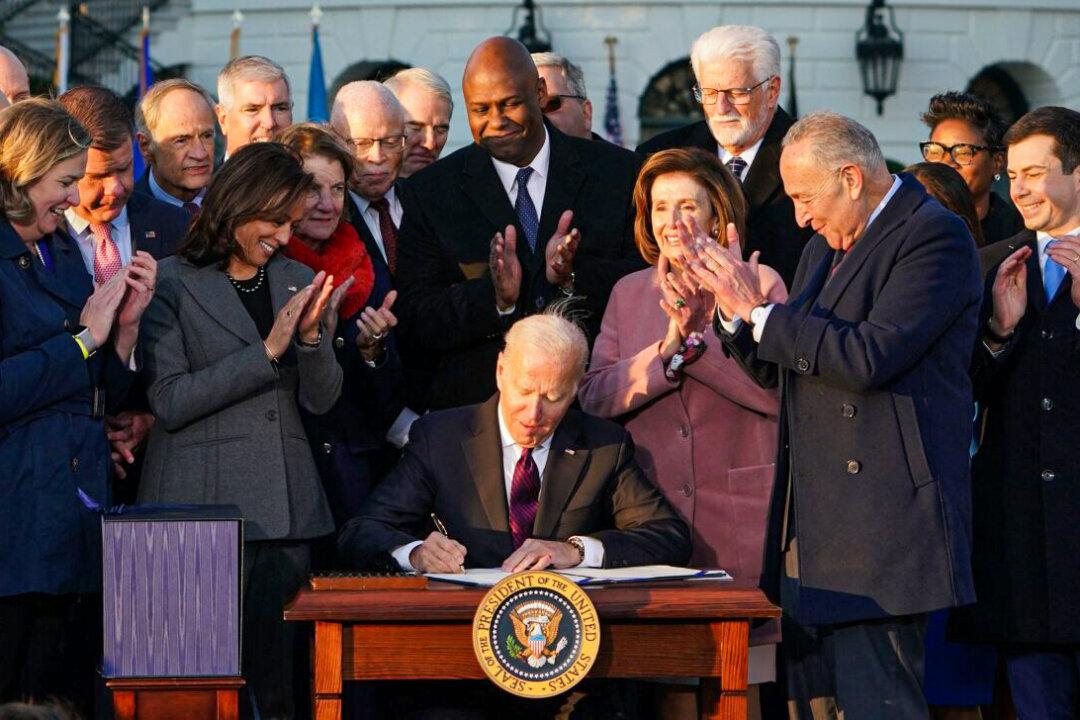President Joe Biden signed the $1.2 trillion Infrastructure and Jobs Act on Nov. 15, marking an important victory for the president following months of quarrels among House and Senate Democrats.
Biden signed the bill in front of the White House, while flanked by members of both parties, in an effort to portray the bill to the American people as a bipartisan effort.





